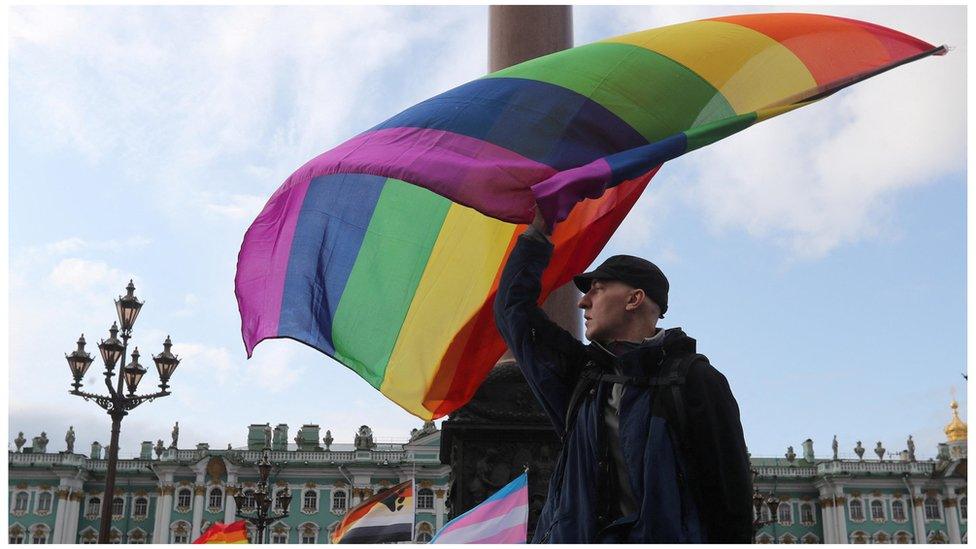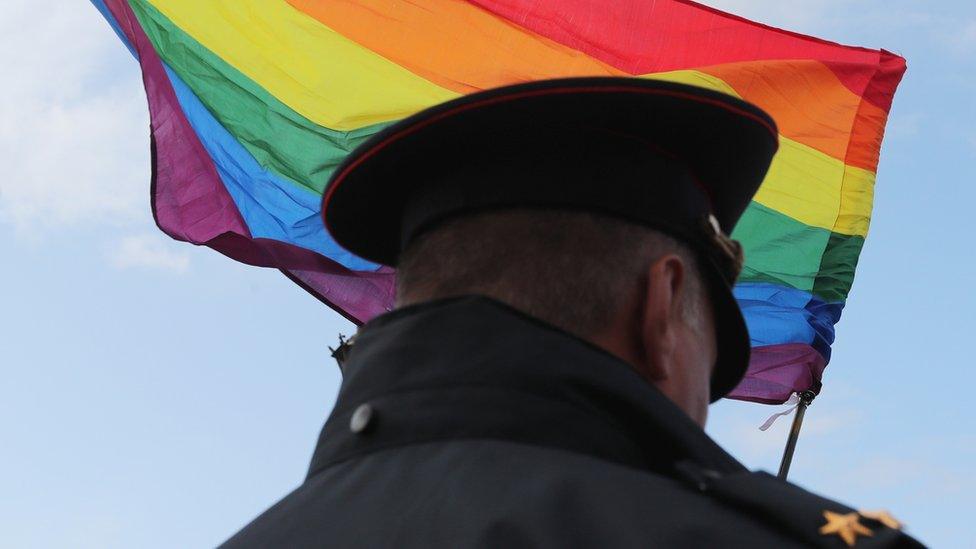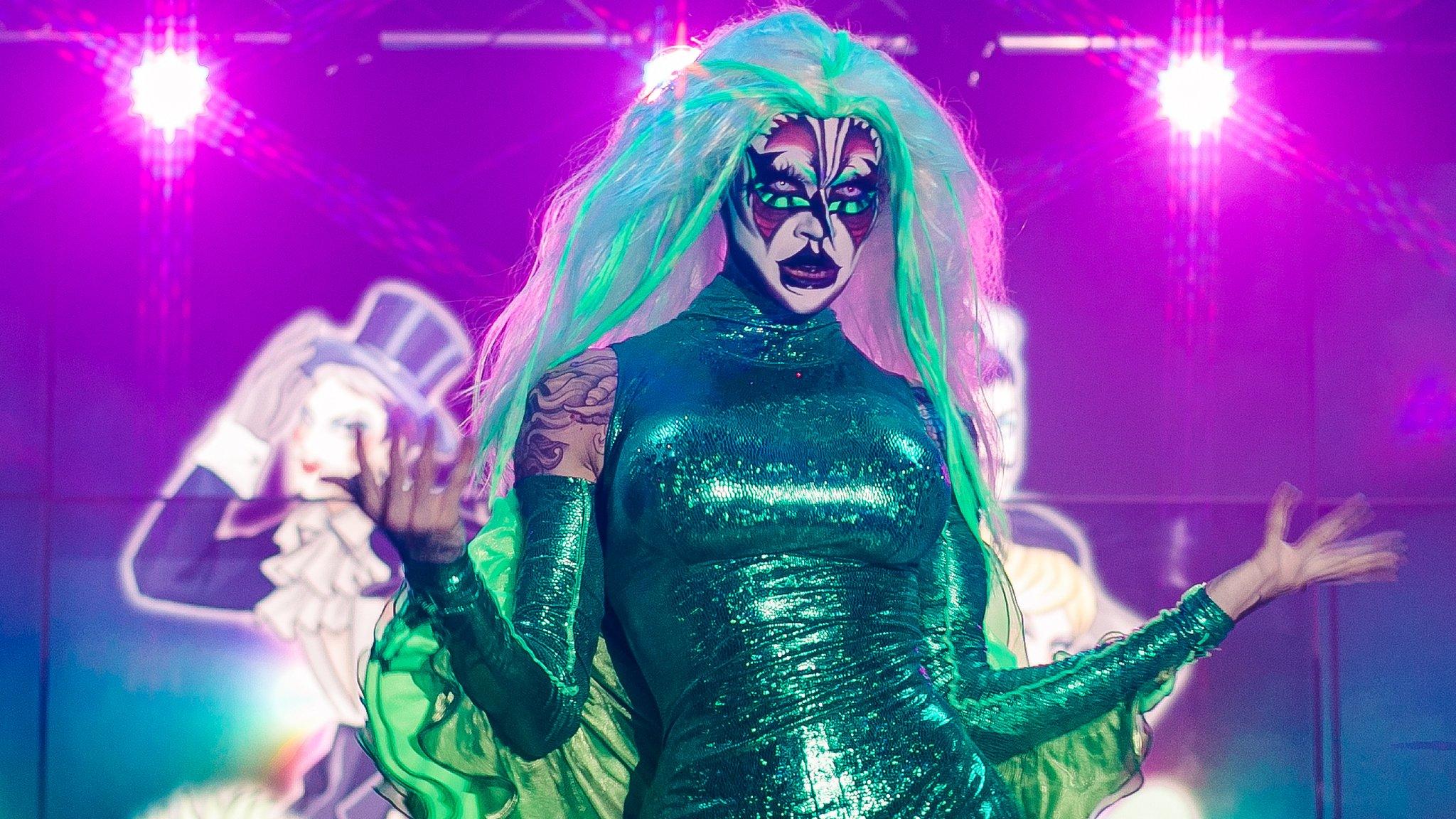Two arrested in Russia's first LGBTQ+ extremism case
- Published

A participant waves a rainbow flag during the St Petersburg Pride in 2019. Today, the flag would be considered a "symbol of extremism"
Two employees of an LGBTQ+ club in the Russian city of Orenburg have been arrested on suspicion of being members of an "extremist organisation".
It is the first criminal case of its kind since Russia's Supreme Court outlawed the so-called "international LGBT movement" last November.
If found guilty, the defendants face up to ten years in jail.
The hearing was held behind closed doors.
The art director of the club, Alexander Klimov, and administrator Diana Kamilyanova will remain in custody until 18 May.
The court said that the defendants "acted in premeditation with a group of people... who also support the views and activities of the international public association LGBT".
Police raided the club, called Pose, in early March following a request from the local prosecutor.
They were reportedly accompanied by members from a local nationalist group called "Russian Community".
A statement posted on the nationalist group's site said that the items confiscated during the police raid at the club included a female stage costume, five female wigs, and fake female breasts.
The administrators of the site praised "Russian Community" members, saying they had "demonstrated a high level of training and organisation" in their "first successful raid".
Police began raiding gay clubs across Russia soon after the Supreme Court's decision last year.
Ksenia Mikhailova, a lawyer for Russian LGBT group "Coming Out", said the Orenburg case was "a big surprise" which could show the authorities are now treating instances of so-called LGBT propaganda as a criminal rather than an administrative offense, as had previously been the case.
The case could set a precedent for how the law is applied to LGBTQ+ people in Russia.
It is also a sign of the growing crackdown on LGBTQ+ rights in the country.
Since Russia's Supreme Court labelled the "international LGBT movement" as an extremist organisation, the rainbow flag is now also considered a symbol of extremism.
Last month, a woman in the city of Nizhny Novgorod was detained for five days after police spotted her wearing earrings featuring a rainbow symbol.
In recent years Russia's LGBT community has come under increasing pressure from the authorities.
In 2013, a law was adopted prohibiting "the propaganda [amongst minors] of non-traditional sexual relations".
President Vladimir Putin has previously said he sees LGBT activism as part of an attack by the West on "traditional Russian values".
Last July, gender reassignment surgery was banned.
Related topics
- Published30 November 2023

- Published23 January 2023
